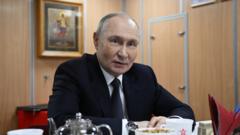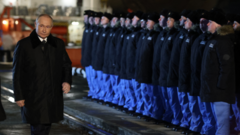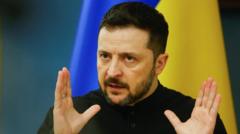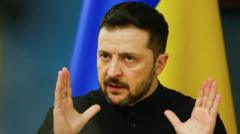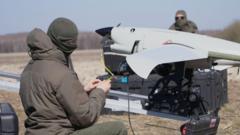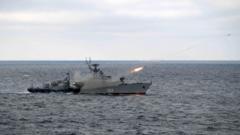European leaders are facing the challenge of divesting from dependence on U.S. defense contributions while ensuring support for Ukraine amid dwindling political will and economic constraints.
European Defense Dilemma: Unity Cracks Amid Financial Strain

European Defense Dilemma: Unity Cracks Amid Financial Strain
As European nations grapple with defense funding challenges, cracks in unity threaten efforts to bolster military support for Ukraine and self-reliance.
European leaders are feeling the pressure to step up their defense spending and enhance support for Ukraine, responding to shifting demands from Washington amidst a turbulent political landscape. However, despite their tough talk, signs of division are appearing as nations struggle with the financial realities of increased defense budgets in an environment marked by slow growth and high debt levels.
Countries such as the Netherlands have shown reluctance to raise collective debts for military spending, further complicating efforts to maintain a unified front. The recent announcement of a plan named “ReArm Europe” from the president of the European Commission, Ursula von der Leyen, met skepticism from major players like Italy and Spain, who termed it overly ambitious. The initiative was then rebranded as “Readiness 2030,” scheduling a more gradual approach to military enhancements, expecting to be felt after the expected end of Donald Trump’s presidency.
This evolving strategy reflects a recognition that Europe’s newfound emphasis on self-reliance won’t materialize overnight; it will demand substantial financial resources, political savvy, and continued collaboration with the United States. Kaja Kallas, former prime minister of Estonia and the EU's chief foreign and security official, has been an advocate for supporting Ukraine as an integral aspect of Europe’s defense against Russian aggression, highlighting the intricate balance of power and finances that defines current European security dynamics.





